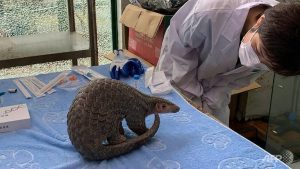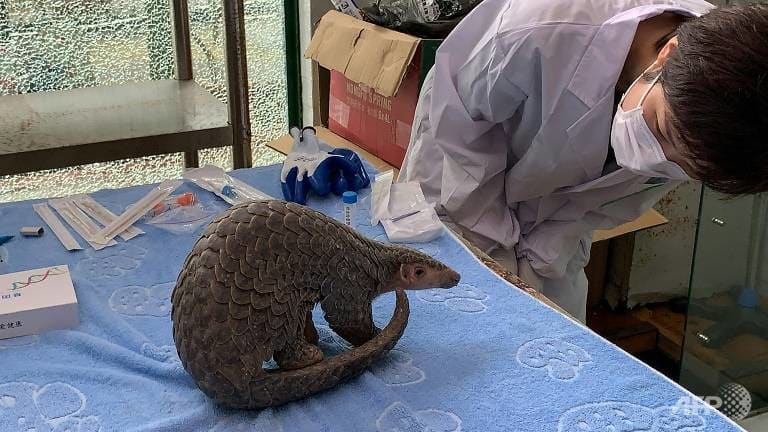
Beijing granted one of the most trafficked mammals similar protections to that of giant pandas
BEIJING: Rescued from a farmer’s fish pond, a young pangolin’s release back into China’s wilderness this week was hailed as a small victory in the battle to save the critically endangered animal.
The freeing of the scaly creature in the eastern province of Zhejiang came after Beijing’s Forestry and Grassland Administration granted the world’s most trafficked mammal similar protections to that of giant pandas.
It was among at least six pangolins – poached for their meat and prized scales – returned to the wild in the last month, according to conservationists.
“This is a great miracle, we have really changed the status quo so that now pangolins are released back into the wild,” said Sophia Zhang, director at the China Biodiversity Conservation and Green Development Foundation.
The charity’s staff, working with Jinhua Animal Rescue Centre, released the young female pangolin into a forest on Thursday.
It was found in a fishpond by a farmer, who reported it to police, and the animal was brought to the government-run rescue centre in Jinhua.
Zhang, who helps wildlife rescue centres across China release pangolins back into the wild, said May to July was primetime for spotting the creatures.
“They will often roam around and get lost outside their natural habitat, or end up in farmers’ homes in search of food.”
But she said it is hard to accurately gauge the number of Chinese pangolins remaining in the wild — only that “very few” are left.
Zhang added that four creatures, who cannot survive in captivity, were set free last month and another was released in eastern Anhui province last week.
The mammals, native to parts of Africa and Asia, are thought by some scientists to be the possible host of the novel coronavirus that emerged at a market in China’s Wuhan city last year.
Beijing recently banned the sale of wild animals for food, citing the risk of diseases spreading to humans, but the trade remains legal for other purposes — including research and traditional medicine.
However, pangolins were left out of the official Chinese Pharmacopoeia this year, the state-owned Health Times reported this week.
The landmark development in the creature’s conservation efforts was hailed by campaigners who had lobbied for the change for a long time.
Their scales are prized in traditional Chinese medicine — despite a lack of scientific proof — and used for the treatment of various diseases such as arthritis, ulcers and tumours.
A practitioner of traditional Chinese medicine told AFP, using his online name Xinglin Daoren because of the sensitivities involved, said the new restrictions would impact some treatments.
He explained: “It can’t be replaced.”



